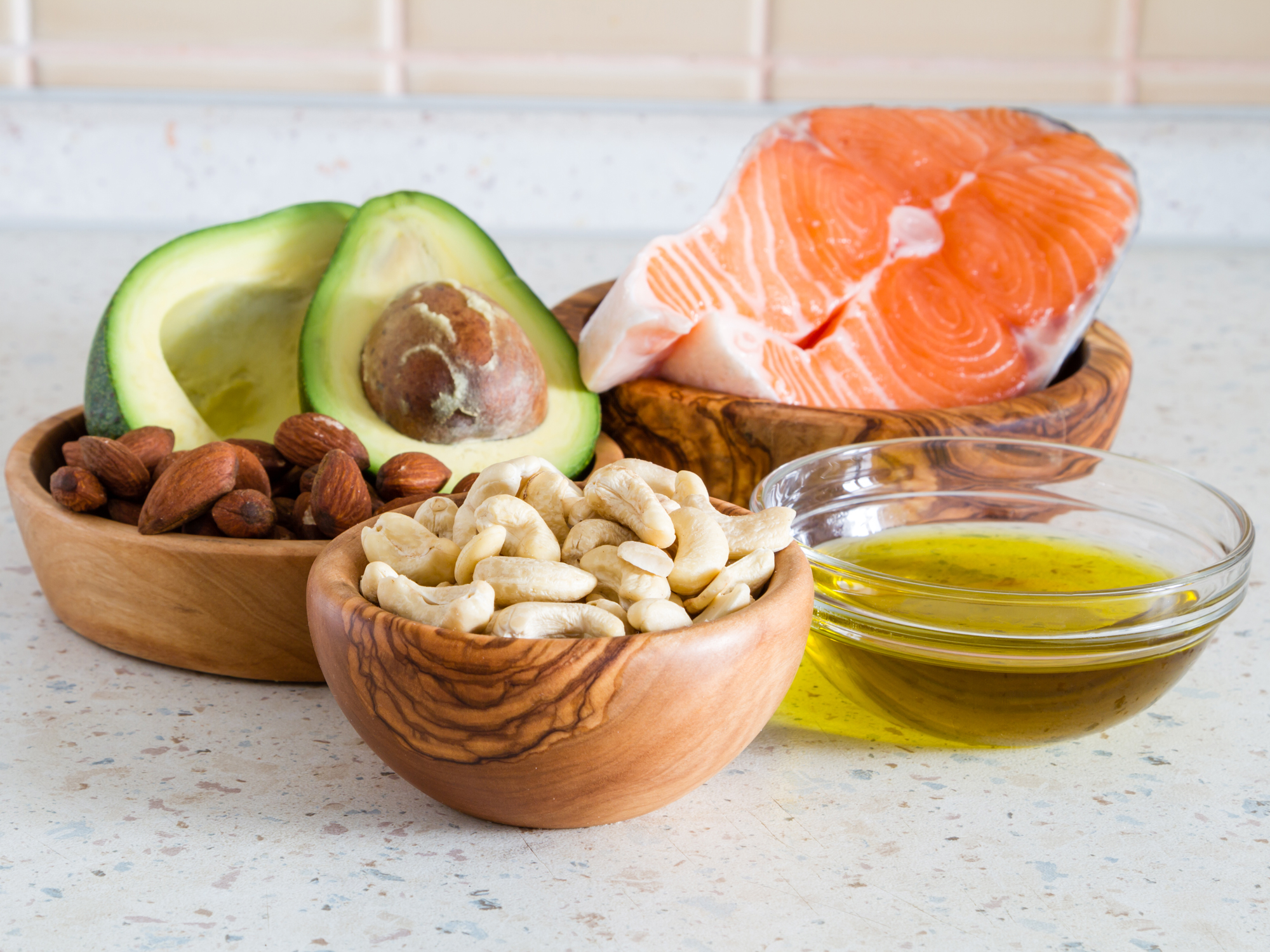Get Easy Health Digest™ in your inbox and don’t miss a thing when you subscribe today. Plus, get the free bonus report, Mother Nature’s Tips, Tricks and Remedies for Cholesterol, Blood Pressure & Blood Sugar as my way of saying welcome to the community!
How to find your healthy fats ‘sweet spot’

Stop eating fat — that’s the worst diet advice you could ever follow.
It’s right up there with not eating eggs — and we know how wrong they were about the eggs, right?
But the sad fact is, doctors and nutritionists doled out this wrong-headed advice for years, because they thought it could improve your heart health and help you live a longer life.
Nothing was further from the truth…
In recent years, we’ve learned that low-fat diets are less effective at helping you lose weight than higher-fat diets, can increase your risk for Parkinson’s and Alzheimer’s, and don’t even lower your risk of heart disease — the main intended benefit.
That’s not to say you should gorge yourself on fats. What you need to do is find the fat sweet spot — the ideal amount of fat that keeps you healthy and improves your chances of making it to your 90th or even 100th birthday.
And the latest study from Canadian researchers can help you do just that…
Eat fat for a fuller life
A recent study published in The Lancet found the people who ate low-fat diets increased their risk of an early death.
More specifically, people who ate low levels of saturated fat increased their risk of an early death by 13 percent. While people who ate high levels of all fats decreased their risk of an early death by 23 percent.
Part of the problem with cutting down on dietary fat, according to researchers, is that people tend to replace it with more carbohydrates — and processed carbohydrates at that. And that’s a problem…
People in the study who ate the most carbohydrates (many of which came from the sugars in soda and in processed food) had a 28 percent higher risk of an early death.
So clearly, cutting out fats and replacing them with carbs is not the answer.
The answer is finding the fat sweet spot, which according to researchers, means getting about 35 percent of your daily calories from fat. So if you’re eating 2,000 to 2,500 calories per day (the amount recommended to maintain your current weight), then about 700 to 875 of those calories should come from fat.
Get fat from high-quality, whole foods
There’s another important thing to remember…
A healthy diet is about more than counting your carbohydrates, calories or fat. It’s about eating healthy, whole foods.
If you’re getting the so-called “right amount” of any of these macronutrients, but you’re getting them from cereal bars and margarine and diet soda and low-fat microwavable meals, then you’re probably not doing your health any favors.
If you’re getting them from organic eggs and apples and lentils and avocados and red leaf lettuce, then you’re probably on the right track.
So while the fat sweet spot is a good guideline to follow, it will only work if you’re getting your fat from whole, healthy, high-quality foods like:
- Grass-fed and organic dairy products
- Eggs
- Avocado
- Fatty fish (salmon, trout, mackerel, sardines and herring)
- Olive oil
- Dark chocolate (adding a dash of extra virgin olive oil to your dark chocolate does wonders for your heart health)
- Nuts (walnuts, almonds, cashews, pistachios)
- Soybeans
- Seeds (chia, pumpkin, hemp and flax)
- Coconut (boy, they were wrong about coconut oil too!)
Editor’s note: A diet void of fats starves your brain. But that’s not the only reason the number of people with Alzheimer’s in the U.S. is expected to triple by 2050. 38.6 million Americans take a single drug every day that robs their brain of an essential nutrient required for optimal brain health. Are you one of them? Click here to find out!
Sources:
- “Low-fat diet could kill you, major study shows.” — The Telegraph. Retrieved September 7, 2017.
- Dehghan, et al. “Associations of fats and carbohydrate intake with cardiovascular disease and mortality in 18 countries from five continents (PURE): a prospective cohort study.” — The Lancet, 2017.
- “Why Low-Fat Diets Don’t Work.” — U.S. News & World Report. Retrieved September 7, 2017.












